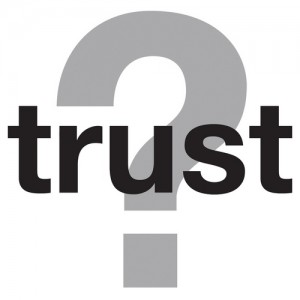Back by popular demand, our 2016 third annual trust poster provides…
52 Ideas That YOU (as a leader) Can Implement to Build Trust
Today I’ve randomly selected thirteen of the 52 ideas from our global community of trust and leadership experts to share as you plan your strategies for 2016.
- When it comes to building trust, leaders go first. Jim Kouzes & Barry Posner
- Build cultures of commitment vs. compliance where choices are guided by values not policies. Mark Fernandes
- Work tirelessly to dispel the illusion that trust is a “soft” skill. Doug Conant
- Agree on a set of core values, practice and reinforce them daily. Barbara Brooks Kimmel
- Be very good at what you do. Competence is a litmus test for believability. Nan Russell
- The first job of a leader is to inspire trust; the second job is to extend trust. Stephen M.R. Covey
- Encourage risk-taking and celebrate “good failures” as opportunities to learn and move forward. Bill George
- In earning the trust of others, being clear on what you want for others, is more important than what you want from David Penglase
- Be a role model. Charlie Green
- Set intentional promises and expectations on what you will deliver to all stakeholders. David Reiling
- Go public when expressing gratitude; go private when expressing disappointment. Holly Latty-Mann
- Listen with the intent to be influenced. Randy Conley
- Kindness amid conflict; Respect across diversity. Davia Temin
Our poster not only makes a great “gift of trust” for the holidays but provides many of the keys to reversing the cycle of organizational mistrust. Do your part by joining our movement today!
Read more about the 2016 poster at this link.
Barbara Brooks Kimmel is the CEO & Cofounder of Trust Across America-Trust Around the World whose mission is to help responsible organizations build trust. She facilitates the world’s largest membership program for those interested in the subject. Barbara also servers as editor of the award winning TRUST INC. book series and the Executive Editor of TRUST! Magazine. In 2012 Barbara was named “One of 25 Women Changing the World” by Good Business International.
Copyright 2015, Next Decade, Inc.



Recent Comments